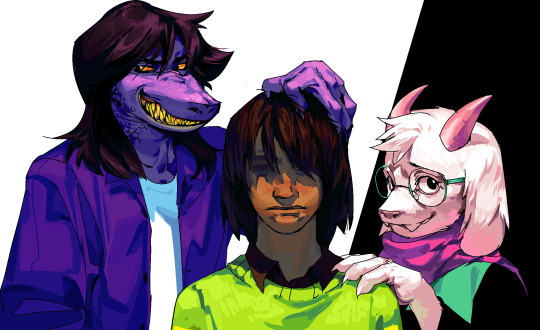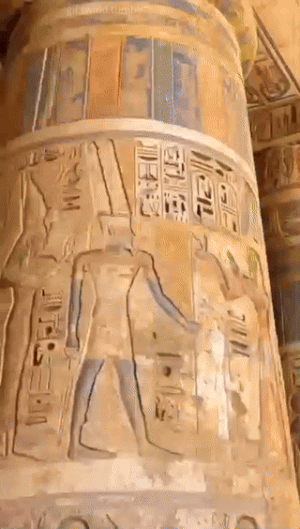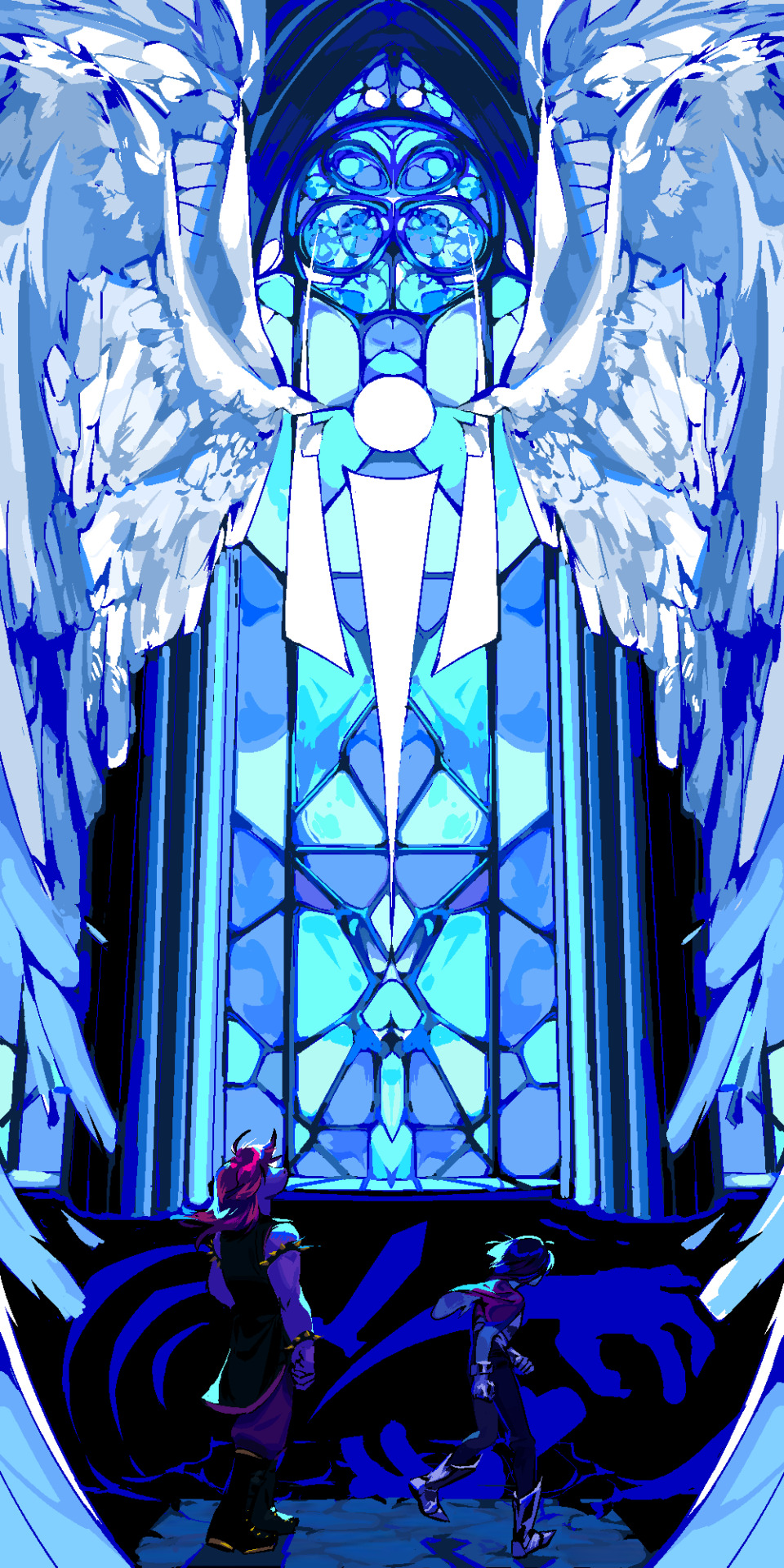not a minor | bad english. won’t get better anyway | any pronouns
Last active 2 hours ago
Don't wanna be here? Send us removal request.
Text
okay so I've been playing a bunch of No Man's Sky, a game whose main unique feature is its mind-bogglingly huge universe of procedurally generated planets, most of which have still never been encountered by human players. when you make first contact with an undiscovered planet, it starts out with a random name. just today I've discovered Snesfin, Inkiew, and Roranbu-Anuki. but a minute ago I landed on a planet with, and I must stress this again, the randomly-generated name of:

4K notes
·
View notes
Text


Ain’t no goddamn way dude
#I like how people try hating on bug but their accusations just#just really really strange takes??? almost nonexistent????#it’s like people just need to hate someone for the sake of hating
602 notes
·
View notes
Note
Whats the diference between a fokclorist and a literally aproach to fairytales???
The best explanation you could find is in my translated notes of my university class right here where it is nicely explained: https://adarkrainbow.tumblr.com/post/717295567370403840/a-class-on-fairy-tales-1
But if you want a short recap.
What I roughly call the "folklorist" branch of the fairytale study/fairytale criticism, is a type of fairytale study that bases itself and models itself after folklorist studies, or takes information, elements and tools from the work of folklorists. It is a branch that considers that fairytales can be neatly and easily divided into different "types" and "categories" (for some it is based on the topic, like the ATU index, for others it is the functions and roles of characters, like Propp's morphology). It is a branch that holds the theory that there is an "original" fairytale-type for each of the category, an archetypal tale on which each "type" of fairytale is based. Their main focus is, by creating those "categorization" of fairy tales, by collecting as much variants and variations of a given tale as possible, to "recreate" or "find" the ancestor-tale, the proto-tale that gave the basic structure on which all the other tales are based. They basically consider all fairy tales are "variants" or "variations" of one ancestor-tales. Afterward, there are many nuances among this branch, which is a very varied landscape - beyond the ATU vs Propp divide above, there are also some that old a "meteorological theory" and insist on reading all fairy tales are symbols or allegories for weather or astronomcial phenomenon, there are others who go for a "mythological" approach and try to see in all fairy tales the degraded remnanats of ancient myths and religious legends, etc etc.
But the other main defining trait of this branch is the fact that they put forward the "folkloric variants" of fairy tales, the "folk versions" of fairytales, they place them much above the "literary variants". They are basically scholars who consider folktales as the true, "original" and best form of fairy tales - which is why they study primarily, collect primarily and focus primarily on the "oral variants" of fairytales, the fairy tales carried on by non-scholars, by non-writers, the typical "peasants tales of the countryside" type of stories. They deem that these stories are the "true fabric" of the fairy tales, they reflect the real life and origins of fairy tales, and that the literary variants are merely "side-steps" of fairy tales, that are derived from the folkloric variants, but ultimately exists as "dead-ends" where the fairytale is not "true" anymore because it leaves its folkloric roots behind and becomes something else entirely.
When you go over at the "literary" branch, we have several common points (for examples both recognize the mythological roots of fairy tales, though in different ways), and several big differences. The main one being that they completely destroy the stereotype (because it is a stereotype, I can confirm that) that literary fairy tales are ultimately of no importance to the history and evolution of fairytales. This branch does not deny that literary fairytales come from an oral, "folkloric" background - but they point out that the collected tales the "folklorist branch" studies mostly come from the 19th and 20th centuries, long after the literary fairytales were published, and the "literary branch" studies how the literary fairytales (Perrault and d'Aulnoy, Basile and Straparola, The One Hundred and One Nights) actually influenced culture enough to modify and change the oral tales collected later on. Instead of rejecting the literary fairytales as sort of side-expansions existing in their own bubble while the main flow and life is found in the folktales ; the literary branch rather considers that maybe the literary works should be placed forward more due to how extremely famous and how quite old they are - it basically reminds something that the "folklorist branch" tends to forget, the idea that literary fairy tales are the ones who forged and shaped the expectations, perception and forms of the fairy tale genre today. The literary branch does not deny the categorization, or cataloguing of fairy tales, in fact it uses it regularly - but it rejects the concept that there is one "proto-fairytale" or "ancestor fairy-tale" per type. Given we will not find back the oral stories of old, given they are... well oral, and thus gone forever, the "literary branch" of fairytale studies and fairytale critics rather traces a history of fairytale based on the literary, written works of fairy tales we actually have, and it considers that fairy tales are not all just variations of one "main fairytale", but rather constant rewrites of each other, each new work influenced by the previous. It notably works heavily on trying to form the web of inter-connections, and the system of references and influences tying the literary works that can seem various and unrelated (Basile and Straparola, Perrault and d'Aulnoy, the brothers Grimm and Andersen) together.
I hope it clarifies the two different ways to "approach" the fairytales? Afterward I want to insist that this is just two of various branches - there are more ways to study and analyze the fairy tales, and these two are just the "dominating families", the ones with the most fame and widespread. And this is just a very rough summary - we are talking of centuries of research spread over an entire continent (even two in fact), so putting it all in one Tumblr post is HARD. But I hope it helps clarify things!
#woah op this helps very much#as someone who was not familiar with literary branch#this helps a lot. especially since my education kinda hates anything that is not propp#conservativism in science drives me crazy oh well
7 notes
·
View notes
Text
Any generalization of fairy tales is going to kind of fundamentally fail unless you are very specific about the definition of fairy tales (if you're using märchen or another form of categorization) and which culture(s) you're using as your basis, if your analysis is including other cultures that a given international tale might have traveled to, the biases of the folklore collectors (...particularly if you're dealing with German folktales collected by the Brothers Grimm) and the potential ways that they might have been received by the people (often though not exclusively women) who were telling them.
814 notes
·
View notes
Text
56K notes
·
View notes
Text










late night thoughts 💜💚 rosemary comic written by @lemontiii and drawn by me
3K notes
·
View notes
Text
ppl who celebrate fictional character birthdays are annoying pass it on
692K notes
·
View notes
Text

Happy birthday Edelgard !!!!!
45 notes
·
View notes
Text

For some reason I really like their geek4geek dynamic where one is anime geek and the other is rpg geek. The gayest shit of all times
#monster prom#monprom#aaravi mishra#aaravi the slayer#zoe monster prom#zoeravi#zoravi#my art#rbrnart
20 notes
·
View notes
Text
anne carson asks antigone, “your name in greek means something like ‘against birth’ or ‘instead of being born’/ what is there instead of being born?” and i think she means dying, in the sense that that antigone is born to die and that her birth is no real birth at all
but really more than “instead of being born,” ‘antigone,’ ἀντί-γονή, means “instead of children,” “in place of the next generation,” and she says it herself, she laments that she goes to her grave having never known marriage or motherhood–
καὶ νῦν ἄγει με διὰ χερῶν οὕτω λαβὼν ἄλεκτρον, ἀνυμέναιον, οὔτε του γάμου μέρος λαχοῦσαν οὔτε παιδείου τροφῆς and now he is taking me by the hands and leading me away, unwedded, unbedded, allotted no share of marriage and the raising of children
but she also says that she would not have done what she did for polynices if it had been for a child because she could bear more children but a brother gone is irreplaceable–
οὐ γάρ ποτ᾽ οὔτ᾽ ἄν, εἰ τέκνων μήτηρ ἔφυν οὔτ᾽ εἰ πόσις μοι κατθανὼν ἐτήκετο βίᾳ πολιτῶν τόνδ᾽ ἂν ᾐρόμην πόνον. τίνος νόμου δὴ ταῦτα πρὸς χάριν λέγω; πόσις μὲν ἄν μοι κατθανόντος ἄλλος ἦν, καὶ παῖς ἀπ᾽ ἄλλου φωτός, εἰ τοῦδ᾽ ἤμπλακον μητρὸς δ᾽ ἐν Ἅιδου καὶ πατρὸς κεκευθότοιν οὐκ ἔστ᾽ ἀδελφὸς ὅστις ἂν βλάστοι ποτέ no not ever, not if i were the mother of children, not if it were my husband lying dead, i would not bear this burden against the will of the people. what law do i say these things to fulfill, you ask? if my husband died, i would have another, and a child from another man, if i lost this one, but since both my mother and father are dead and in the house of hades, no other brother of mine can ever grow back
she chooses a brother instead of children, the burial of the generation past in place of the bearing of the generation to come
611 notes
·
View notes
Text



Jeanne d'Arc The Messenger: The Story of Joan of Arc [1999]
10K notes
·
View notes
Text

I've been having a lot of fun drawing in a semi-realistic art style lately, so I thought it would be fun to draw The Fun Gang like that! with my notes and headcanons. basically how I imagine them to look like "in real life", I guess lol. it was a challenge.
...they're all really huggable now that I think about it...

without text (if you want to use the picture for something maybe)
96 notes
·
View notes









